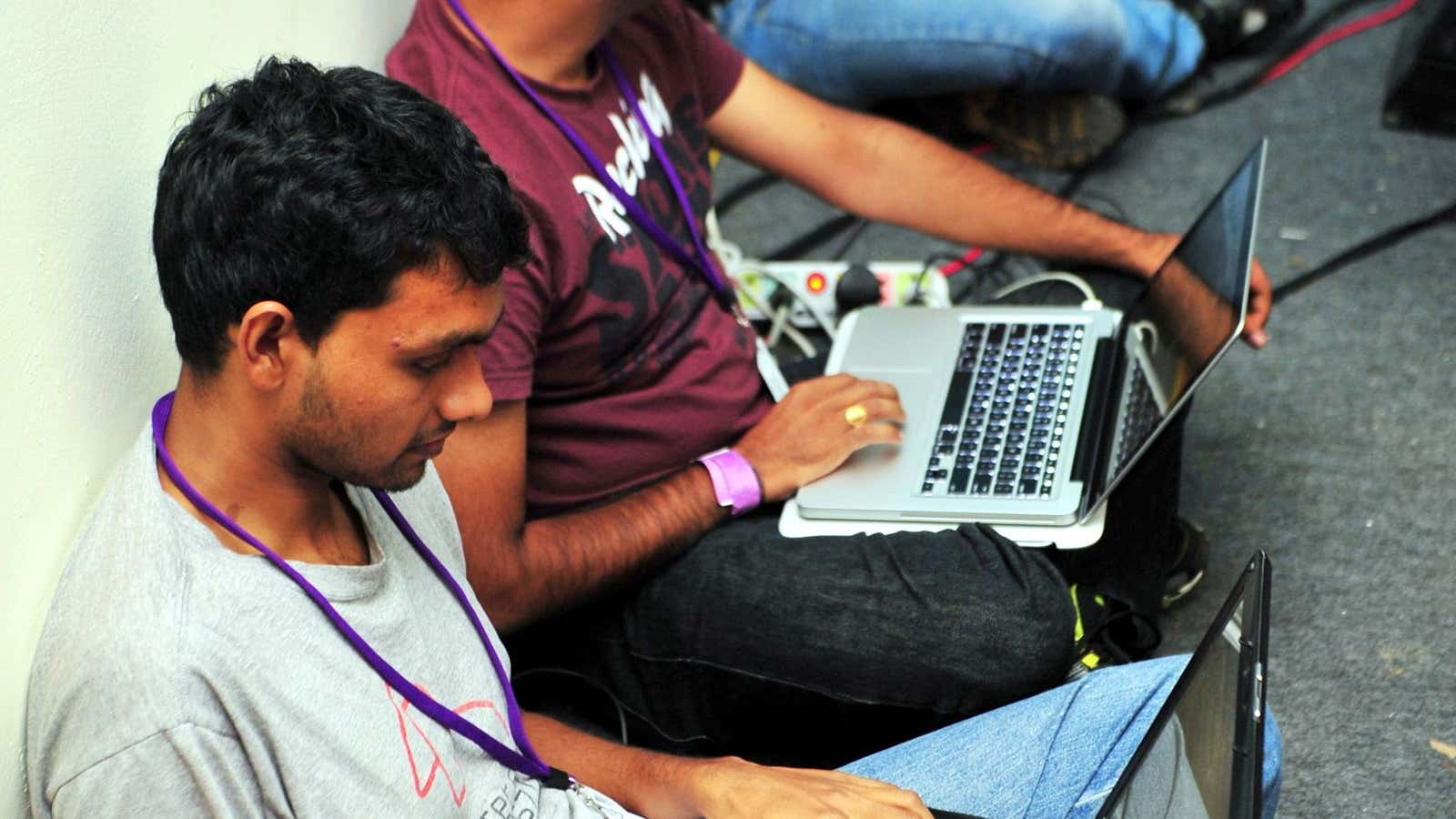“Reskilling” and “upskilling” have of late become buzzwords in the Indian information technology (IT) sector as engineers look to evolve with changing trends.
However, there is not much real action happening.
Over 40% of IT workers who begin attending online courses in new technologies don’t complete them “almost always,” while 24% don’t complete them “half the time,” a recent report by global e-learning platform Edureka said.
The online survey was conducted among 339 Indian IT professionals who showed interest in online courses.
One of the biggest hindrances to their reskilling journey is the lack of proper guidance, the survey showed. People also struggled to motivate themselves.
Only two in 10 respondents said affordability was critical, meaning they are not willing to foot high bills for quality.
Two-thirds consider affordability important but “don’t mind paying for quality of learning and support as long as the money isn’t exorbitant,” the report stated.
But money isn’t the only decider.
With the online education sector set to touch nearly $2 billion in market value by 2021 (pdf)—re-skilling and online certification alone accounting for $93 million of that—IT employees looking to upskill and reskill themselves expect more than mere convenience and affordability. They are seeking a classroom-type environment.
Most people surveyed listed learning online with live instructors as their top preference.
“Tech learners need constant motivation, high-level interactivity, and engagement from learning platforms,” said Vineet Chaturvedi, co-founder of Edureka. “Today’s e-learning platforms need to offer the best of both worlds—online learning’s inherent convenience and ease of access with offline’s real-time interaction and engagement.”
Nearly half of the respondents believed it was critical to be able to ask their questions immediately. And over four in 10 said they should be able to ask questions at least once during learning sessions.
